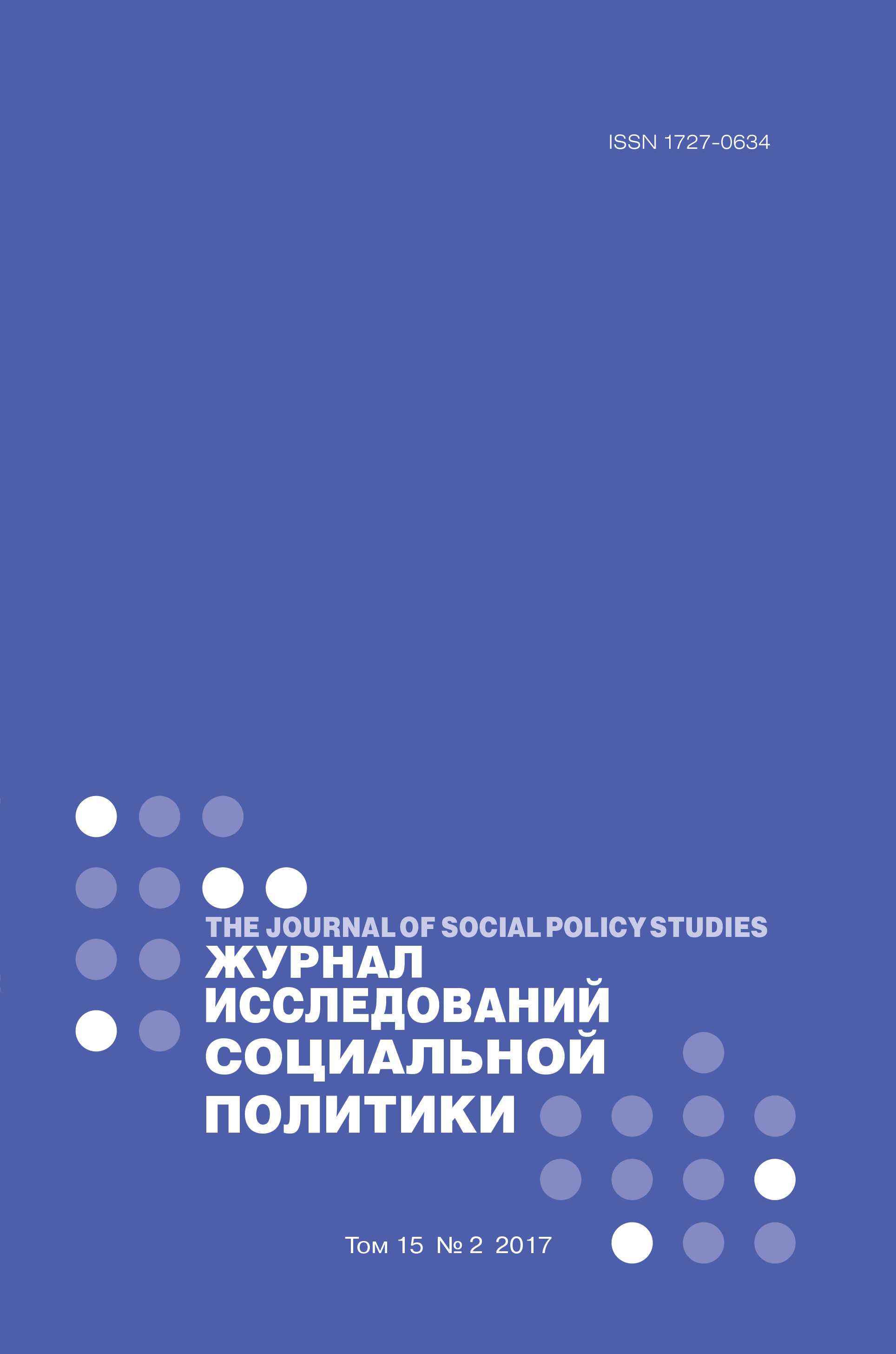Consequences of the 2015 Crisis: Slipping into Poverty or Precarity?
Abstract
Ekaterina Slobodenyuk – PhD, Senior Lecturer, Department of Applied Economics at National Research University Higher School of Economics; Research Fellow, Centre for Stratification Studies (HSE), Moscow, Russian Federation. Email: eslobodenyuk@hse.ru
This article considers the specific features behind the sharp impoverishment that occurred in Russia during the economic crisis of 2015. One consequence of this crisis that is revealed here is a two-fold extension of the poor, which was due to a deterioration of conditions for those on the periphery of poverty (people who typically escape poverty only to return to it from time to time due to troubled economic conditions) and the sharp impoverishment of Russians outside the immediate periphery of poverty. Given that the impact of the crisis on them was the most severe, the focus of the article is on those who were most dramatically impoverished during the crisis. It is shown that the dramatically impoverished differ from the typical representatives of the poor in several economic and socio-demographic characteristics. Representatives of this group suffer high risks on the labour market; they are seen to be lower quality human capital and have unstable and informal employment, a lack of social security. They often have dependents with poor health, as well as non-working people at working age, including those who lost their jobs in 2015. On the basis of these group characteristics it is shown that precarization processes have most seriously affected this part of the population. In this regard, the article demonstrates the importance of social policy as a tool for preventing the impoverishment of those in the wide peripheral zone of the poor, and offers a number of recommendations to address this problem. These include increasing unemployment benefits, matching the cost of living to a minimum wage, expanding social guarantees such as employment contracts in line with the most recently devised protection measures and returning to the practice of excluding the subsistence level of the child’s total income from the wages of parents when determining the appropriate amount of tax payments.















